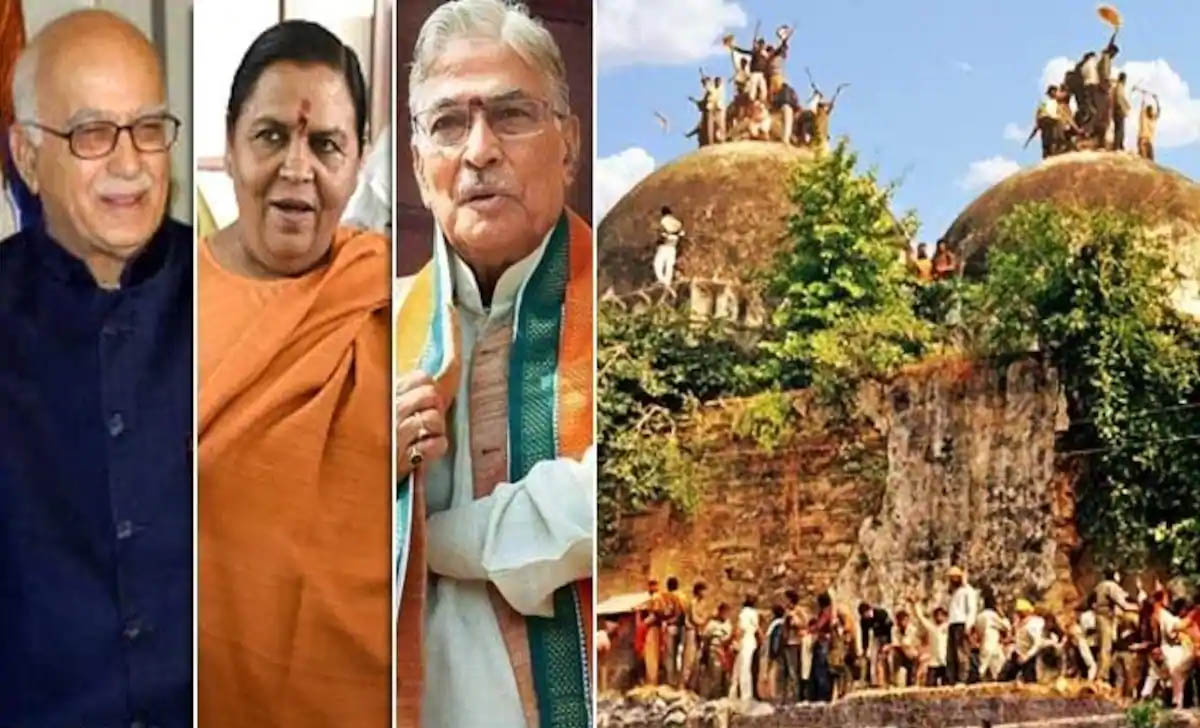
On Wednesday, September 30, a special CBI court in Lucknow is expected to deliver its judgment in the criminal case surrounding the demolition of the Babri mosque. This particular case deals with the criminal conspiracy behind the demolition of the 16th century mosque and is a completely different case from the civil suit that was decided by the Supreme Court earlier.
Key accused
On December 6, 1992, members of right-wing Hindutva groups like the Rashtriya Swayamsevak Sangh (RSS), Vishwa Hindu Parishad (VHP) and Bajrang Dal along with top leaders of the Bharatiya Janata Party (BJP) gathered together in Ayodhya. PV Narasimha Rao was the Indian Prime Minister at that time and Kalyan Singh was the Chief Minister of Uttar Pradesh. Lal Krishna Advani had already rallied support for construction of a Ram Temple at the site where the Babri Mosque stood at that time.
LK Advani is on trial in the criminal conspiracy case along with 31 others Murli Manohar Joshi, Uma Bharati, Kalyan Singh, Vinay Katiyar and Sakshi Maharaj. Some of the accused such as VHP’s Ashok Singhal, Giriraj Kishore and Vishnu Hari Dalmia have since died. They were all named together in FIR 198/92, the second FIR to be filed in the case. The first, 197/92 named unknown ‘kar-sevaks’ who actually climbed on top of the dome and razed the mosque. The FIR against them was handed to the Central Bureau of Investigation (CBI), while 198/92 was first given to the Crime Investigation Department (CID). However, even this FIR was transferred to the CBO on August 27, 1993.
Charges against the accused
The first chargesheet naming 40 people including eight political leaders and Hindutva heavyweights was filed on October 5, 1993. On January 10, a supplementary chargesheet alleging a wider conspiracy was filed. Subsequently Section 120 (B) that deals with criminal conspiracy was applied to the case. Shiv Sena supremo Bal Thackeray was also drawn into the case.
Though a Lucknow Court ordered the framing of charges, 37 of the accused moved Allahabad High Court against the order and managed to get a stay that put a spanner in the works for at least four years.
Then in a body blow to the CBI, the Allahabad High Court ordered on February 12, 2001, that criminal conspiracy charges be dropped against LK Advani, MM Joshi, Uma Bharati, Kalyan Singh among others. When the HC refused to review its decision, the CBI urged the UP government for a fresh notification to commence the trial.
The trial(s)
This is where comes, a fork in the road. The CBI withdrew criminal conspiracy charges against Advani, but filed a fresh chargesheet before a Rae Bareili court. Two cases continued to be argued in two separate courts in Rae Bareili and Lucknow till 2011, when the Supreme Court clubbed the Rae Bareili case with the trial in Lucknow. In April 2017, the SC directed the criminal conspiracy charges be restored.
The SC also ordered that day-to-day proceedings be carried out and the trial be completed in two years. Subsequently the SC also directed the UP government to issue necessary orders to extend the tenure of the presiding judge who was all set to retire on September 30, 2019. Further extension of the deadline for finishing the trial was granted on May 8. LK Advani’s statement was recorded via video-conferencing in July 2020. The court is now expected to deliver judgment in the case, 28 years after the actual demolition.
Related:
Babri Masjid demolition case: Verdict likely on September 30
Court begins recording statements of Babri demolition accused